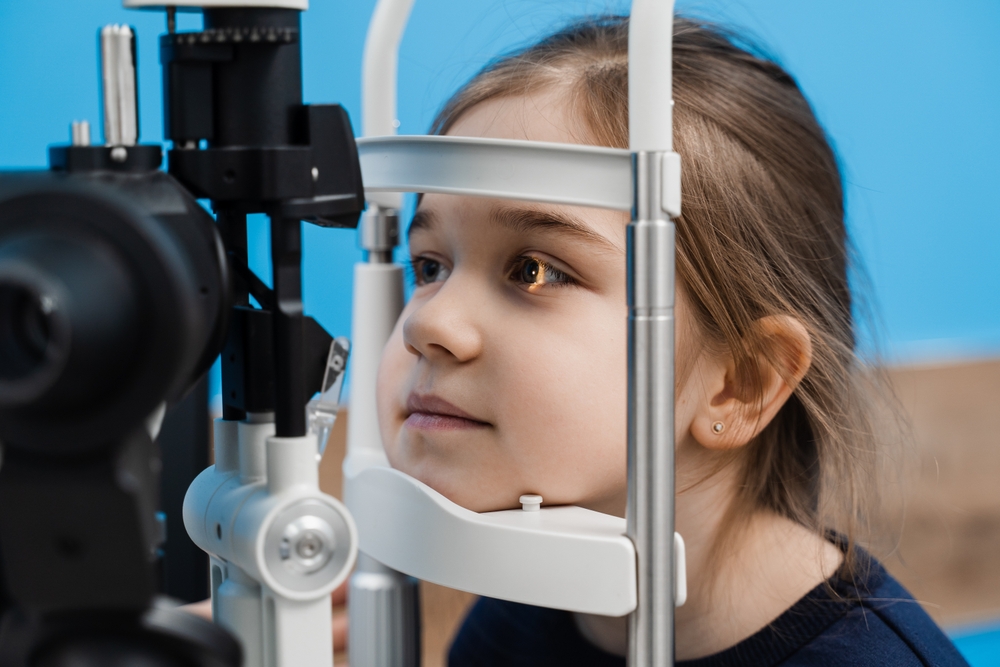
When it comes to safeguarding the health and development of our youth, understanding the realm of pediatric optometry is paramount. This specialized branch of eye care focuses on the visual needs, conditions, and treatment of young individuals. Within this domain, a significant concern is the management of myopia, a condition commonly referred to as nearsightedness, where distant objects appear blurry while close ones are clear. Children and vision health are intertwined in ways that can significantly affect educational performance, social interactions, and overall quality of life.
Understanding Myopia in Children
Myopia in children is more than just a temporary visual inconvenience; it is a condition that can increase the risk for developing eye disease later in life. The mechanics of myopia involve the eye's shape, where the eyeball grows too long from front to back, preventing light from focusing directly on the retina. This discrepancy results in a blurred image when looking at distant objects. The implications of not addressing myopia extend beyond mere blurry vision; they can lead to a lifelong journey of eye health issues if not managed appropriately. The implications of unchecked myopia extend beyond the inconvenience of needing glasses or contact lenses. As myopia progresses, it can lead to an increased risk of developing conditions such as glaucoma, cataracts, and retinal detachment, all of which can have profound effects on vision. Therefore, early detection and management are critical in minimizing these risks and ensuring a child has the best possible vision throughout their life.
Children with one or both parents who are nearsighted have a higher likelihood of developing myopia. Additionally, the modern lifestyle, characterized by prolonged indoor activities and extensive near work, such as reading and screen time, contributes significantly to the rising tide of myopia.
Symptoms of Myopia in Children
Identifying the symptoms of myopia in children is the first step towards ensuring their visual health is not compromised. Frequent squinting, excessive blinking, or rubbing of the eyes can be subtle hints that a child is struggling to see clearly. These actions are often attempts to momentarily improve clarity or relieve eye strain. Another tell-tale sign is the child's preference to sit closer to the television or hold books and digital devices unusually close to their eyes.
Complaints of headaches or eye fatigue, especially after periods of prolonged focus on distant objects, can also be symptomatic of myopia. This discomfort arises from the strain placed on the eyes as they attempt to rectify the blurred vision. Observing a decline in interest or participation in outdoor activities could also be related, as children with myopia might find these environments challenging due to their difficulty in seeing faraway objects clearly.
The Importance of Early Myopia Management
Initiating treatment at an early age can drastically alter the trajectory of the condition and its impact on a child's life. The primary goal is to slow down, if not halt, the progression of myopia, thereby reducing the risk of developing severe eye problems in the future. Early myopia management is not just about correcting vision; it's about safeguarding the child's overall eye health and well-being.
Effective Myopia Management Methods
Effective myopia management encompasses a multifaceted approach that combines various strategies tailored to the individual needs of the child. The cornerstone of this approach is regular monitoring and adjustment of the treatment plan by a pediatric optometrist, ensuring it remains effective over time. There are several new treatment options available to slow the progression of myopia.
Recent advancements have led to the development of specialized contact lenses designed specifically to slow the progression of myopia. Orthokeratology lenses are specialty contact lenses that re-shape the cornea while a child sleeps at night. The advantage to this type of lens is that the child doesn’t have to wear contacts or glasses during the day, which is advantageous for sports. Specialty soft multifocal contacts, such as the MiSight lens or NaturalVue Multifocal, are worn during the day to slow the progression of myopia. Both types of contact lenses have been shown to reduce myopia progression by 50% in research studies.
Low-dose atropine eye drops, which are taken once daily, have been found to reduce myopia progression by 35%.
Vision therapy, and specialized glasses designed to reduce near point stress, are another option to slow the progression of myopia. In some people, problems with how the eyes focus and work together can lead to increased myopia. These methods have less current research behind them, but have been used by behavioral optometrists to control myopia for the last century. These methods are difficult to research because treatment is very individualized.
Lifestyle modifications are another critical component of myopia management. Encouraging children to spend more time outdoors in natural light has been associated with a reduced risk of developing myopia. Additionally, implementing regular breaks during near work activities can help alleviate eye strain and contribute to the overall strategy of slowing myopia progression. Reducing screen time, and making sure screens aren’t being held to close to the eyes, are also important.
Schedule Your Child’s Eye Exam with Vision Rehabilitation Associates Today
The management of myopia in children is a journey that requires dedication, expertise, and a proactive approach. The role of pediatric optometry in this journey is invaluable, providing the guidance, treatment, and support necessary to ensure our children have the best possible visual outcomes.
For further guidance on myopia management strategies or to schedule your child’s eye exam, visit Vision Rehabilitation Associates at our office in Glenview, Illinois, or call (847) 716-2340 to book an appointment today.










